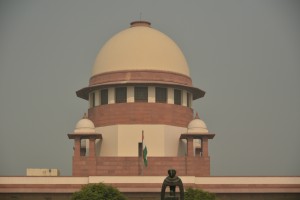Supreme Court: In the matter where the appellant was found guilty of committing the murder of a minor girl, aged about seven years and also of kidnapping and subjecting her to sexual abuse on her and for destruction of evidence relating to the crime, the 3-Judge Bench of J. Chelameswar, Shiva Kirti Singh and Abhay Manohar Sapre, JJ held that the appellant should be inflicted with imprisonment for life with a further direction that he shall not be released from prison till he completes actual period of 25 years of imprisonment.
The Court referred to the decision of this Court in Swamy Shraddananda(2) v. State of Karnataka, (2008) 13 SCC 767, where it was held that life imprisonment means the whole life span of the person convicted and therefore in the facts of a case while not confirming death penalty, this Court may, while exercising its power to impose the punishment of life imprisonment, specify the period up to which the sentence of life must remain intact so as to be proportionate to the nature of the crime committed. The Court was of the opinion that the innovative approach reflected in the aforesaid judgment, on the one hand helps the convict in getting rid of death penalty in appropriate cases, on the other it takes care of genuine concerns of the victim including the society by ensuring that life imprisonment shall actually mean imprisonment for whole of the natural life or to a lesser extent as indicated by the court in the light of facts of a particular case.
Considering the fact that the deceased, a helpless child fell victim to a crime of lust at the hands of the appellant who was 27-years old at the time of commission of offence, the Court said that there may be probabilities of such crime being repeated in case the appellant is allowed to come out of the prison on completing usual period of imprisonment for life which is taken to be 14 years for certain purposes and hence, ordered that the appellant should undergo life imprisonment for the whole of his natural life i.e. 25 years of imprisonment. [Tattu Lodhi v. State of Madhya Pradesh, 2016 SCC OnLine SC 947, decided on 16.09.2016]

